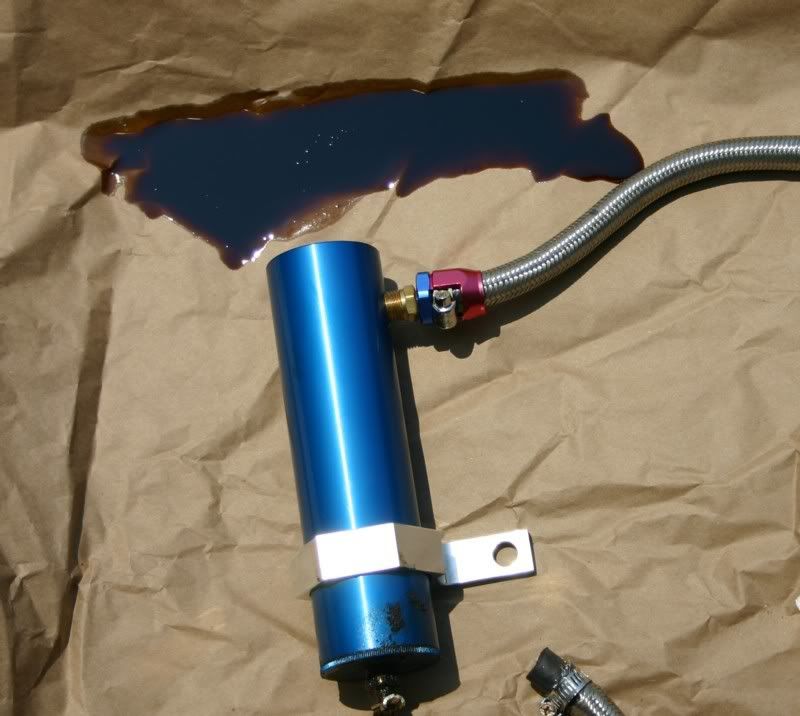Willfulone
Well-known member
Hi Everyone,
I get a few emails a week asking if catch cans really work. I did a valve cover job this week and had to remove the catch can to do the work. Here is what came out of the can after 2000 miles of "light" driving.
driving.

It was about 2oz.
Peace
Chip
I get a few emails a week asking if catch cans really work. I did a valve cover job this week and had to remove the catch can to do the work. Here is what came out of the can after 2000 miles of "light"

It was about 2oz.
Peace
Chip

 My Grand Daddy and my Dad were Machinist and Fanatic's about upper cylinder lubrication, and I believe they were 100% Correct!! Heres Why!!I'm Old enough to remember when Cars didn't have a PVC system,just a Breather Cap and a 1 inch tube running from the back of the intake valley to just below the oil pan!! Since PVC systems have been used, engines have been lasting longer!!More Miles with less repairs!! Most all vehicles now days will get at least 100,000 plus out valves and guides some even as much as 200,000-300,000 miles!! My wifes 4.3 Jimmy has over 245,000 and has never had a head off of it, my daughters Z-71 had 196,000 on it and had a head gasket start seeping so we pulled the heads and I was amazed that I could still see the cross hatching in the cylinders!!!We put H/gaskets on it and it's hook'n down the road!! That wouldn't happen in the old days!!!
My Grand Daddy and my Dad were Machinist and Fanatic's about upper cylinder lubrication, and I believe they were 100% Correct!! Heres Why!!I'm Old enough to remember when Cars didn't have a PVC system,just a Breather Cap and a 1 inch tube running from the back of the intake valley to just below the oil pan!! Since PVC systems have been used, engines have been lasting longer!!More Miles with less repairs!! Most all vehicles now days will get at least 100,000 plus out valves and guides some even as much as 200,000-300,000 miles!! My wifes 4.3 Jimmy has over 245,000 and has never had a head off of it, my daughters Z-71 had 196,000 on it and had a head gasket start seeping so we pulled the heads and I was amazed that I could still see the cross hatching in the cylinders!!!We put H/gaskets on it and it's hook'n down the road!! That wouldn't happen in the old days!!!



